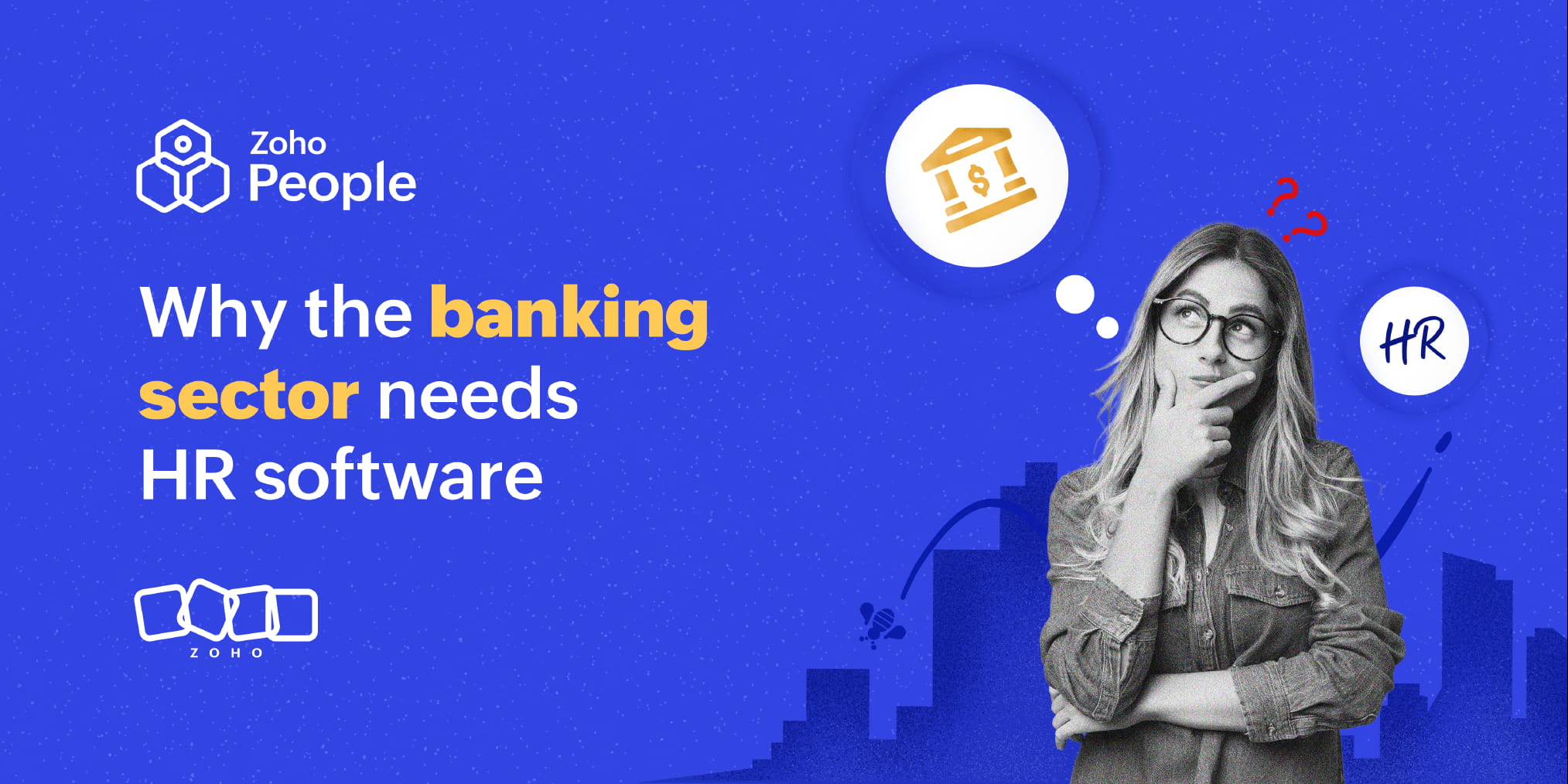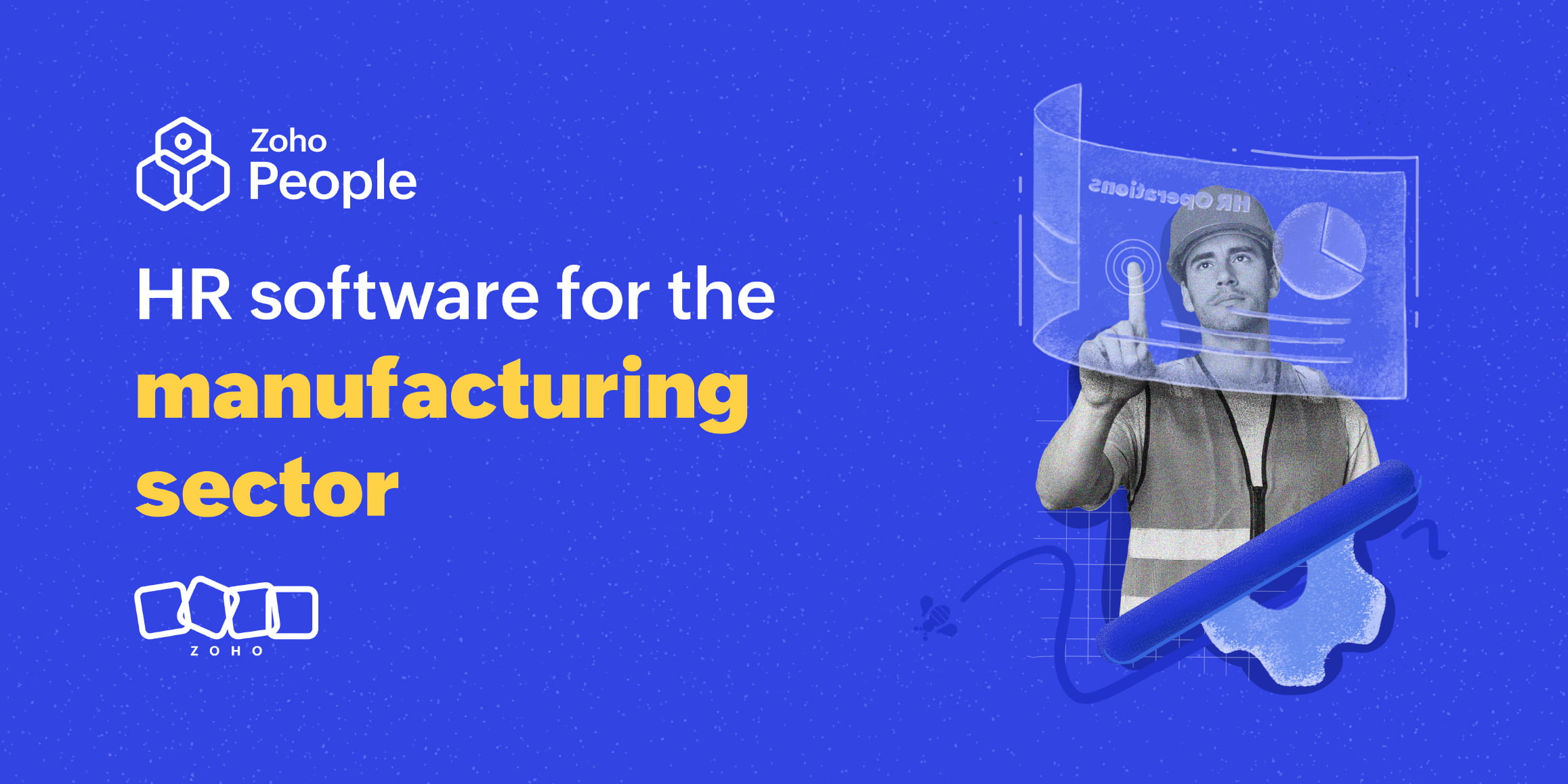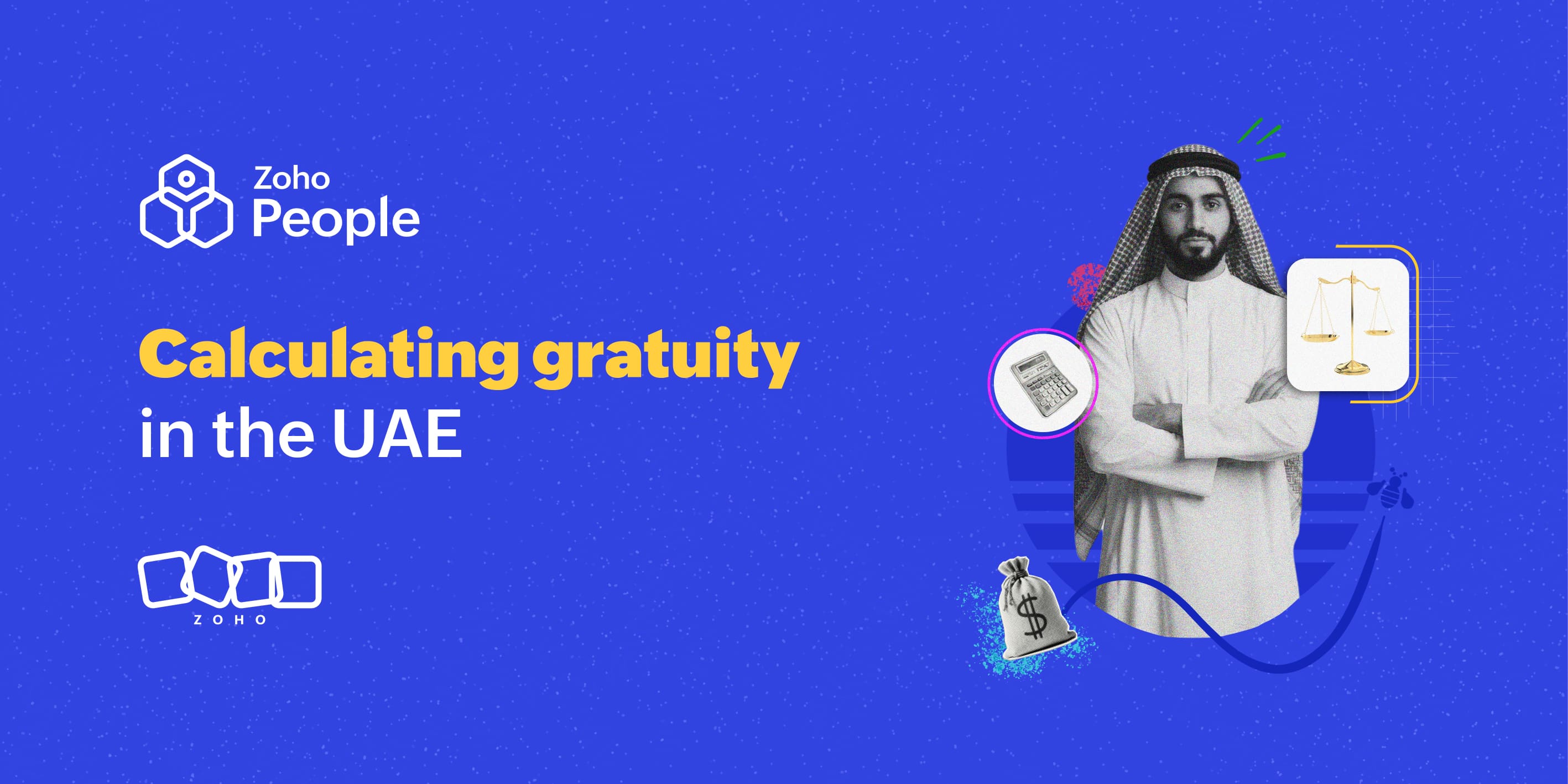- HOME
- HR insights
- AI and HR: Predictions for 2025
AI and HR: Predictions for 2025
- Last Updated : May 7, 2025
- 2.0K Views
- 8 Min Read
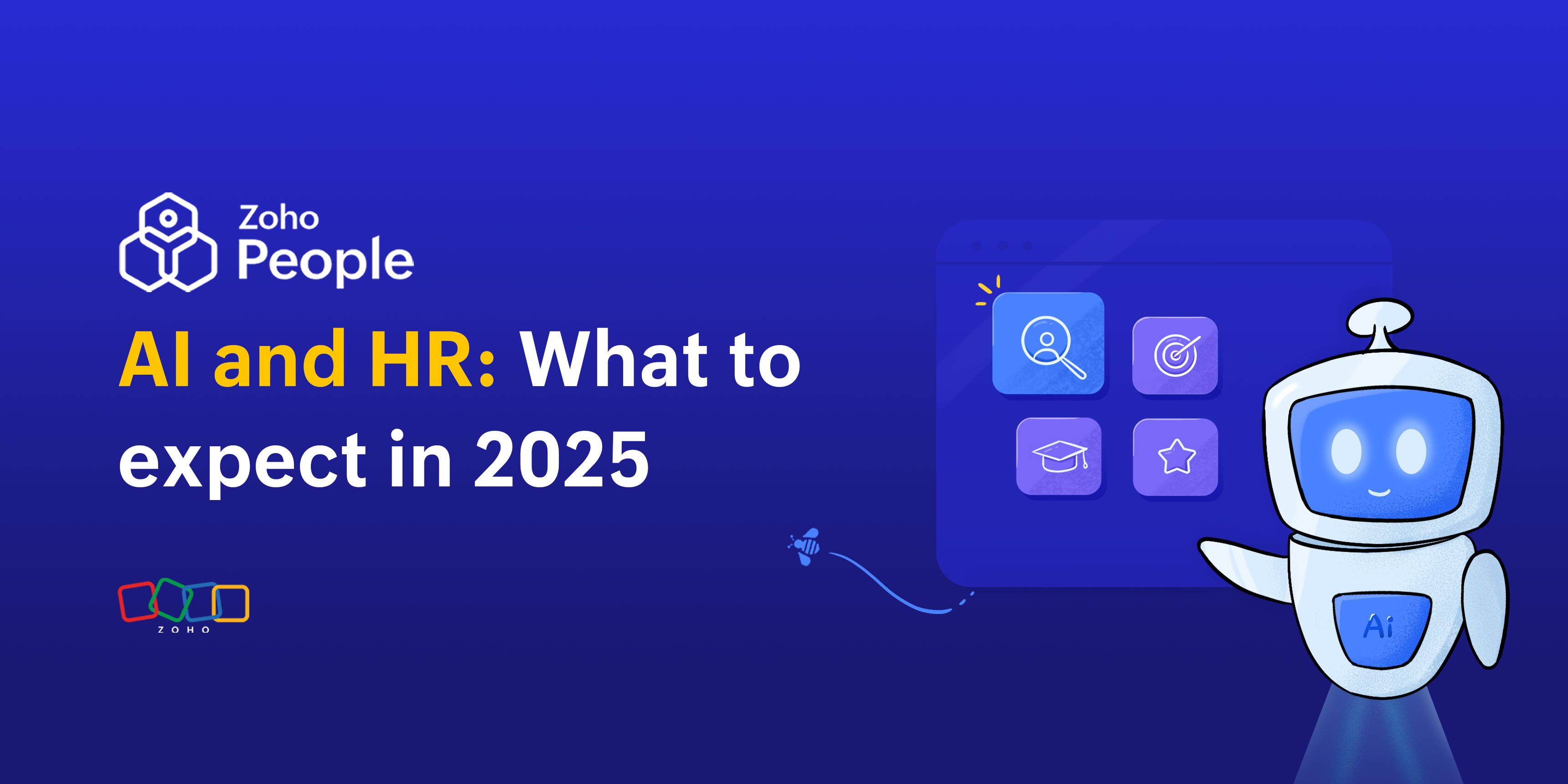
AI is undoubtedly the next big thing. It has left its mark on almost every industry, and HR is no exception. From automating repetitive administrative tasks to enabling data-driven decisions, AI has been pivotal in helping HR professionals provide an exceptional working experience to their employees, especially when the job market is becoming highly competitive.
According to Gartner, 76% of HR professionals think that not adopting AI solutions in the next one or two years will put their organization at a disadvantage when it comes to organizational success. The same study found that about 38% of HR leaders have already explored or adopted AI solutions to make their HR operations efficient. These statistics highlight that it's essential for HR teams to stay on top of AI-powered solutions to keep their people operations competitive. That's why, in this blog post, we've predicted some of the top AI trends that'll govern different aspects of HR operations.
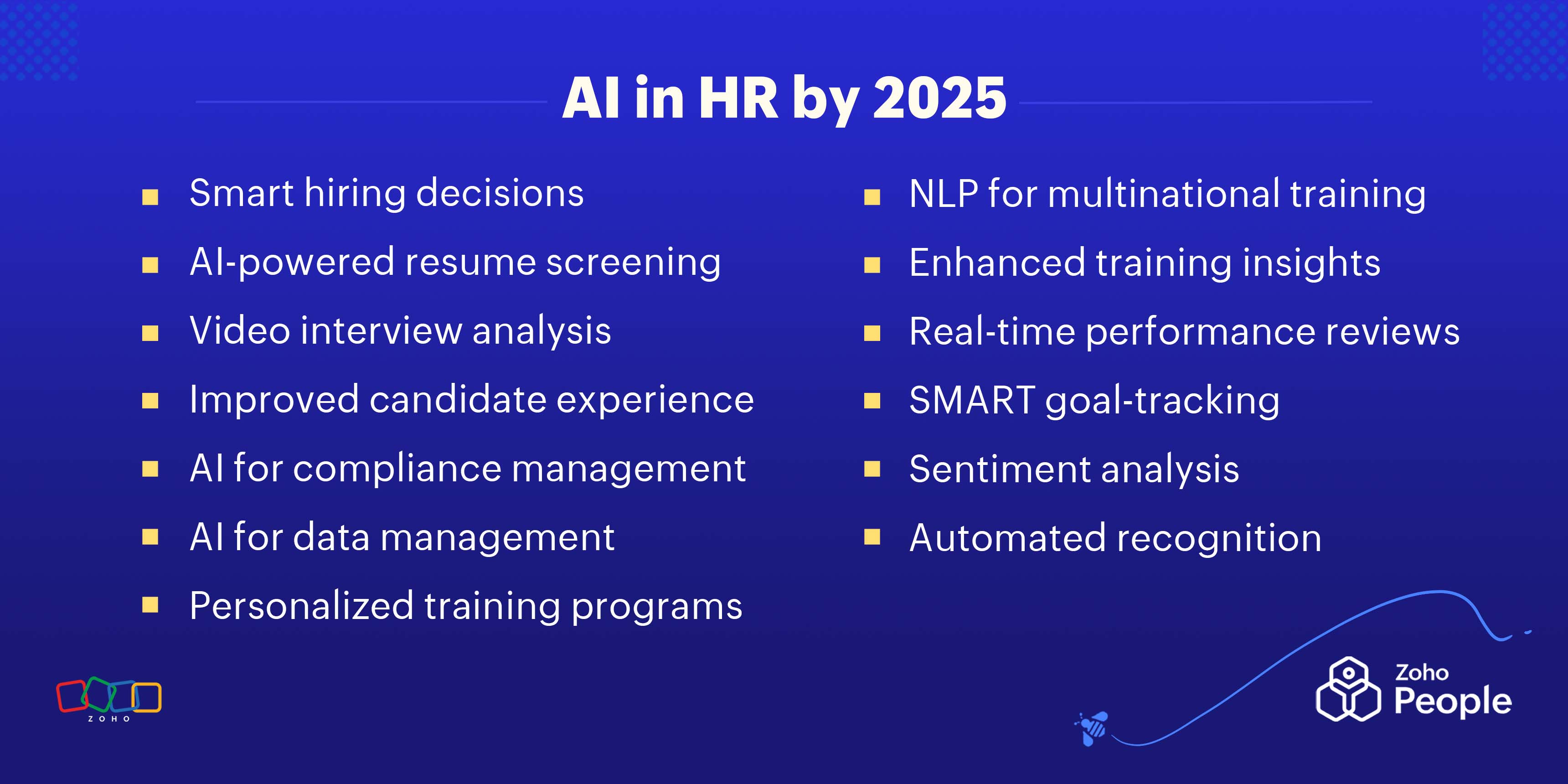
AI in recruitment: Key predictions for 2025
The process of recruitment is becoming more and more candidate-centric, efficient, accurate, and automated, thanks to intuitive AI technologies. There was a time when recruiters had to sift through hundreds of resumes to shortlist the right candidates for their interviews. Now, we have AI algorithms that can scan and shortlist relevant candidates in a few seconds. As AI technologies continue to evolve, we can expect to see several organizations embracing them even further.
Smart hiring decisions
By 2025, we'll see AI taking over more strategic aspects of recruitment. HR teams will rely on AI to make smart hiring decisions and become more objective by minimizing human biases. By analyzing past hiring trends, project pipelines, project milestones, market expansion plans, sales projections, and attrition rates, AI will be able to make accurate forecasts of an organization's hiring needs. For instance, if a SaaS company is planning to launch a new product for a different sector, AI can predict the number and type of employees with the necessary skills required to support such an expansion. This kind of prediction, in turn, helps them ensure that they are adequately staffed to meet their business goals at all times. With these insights, they'll also be able to hire the right people for the right positions.
AI-powered resume screening
Based on the skills, qualifications, and attributes required for the role that the organization is hiring for, AI-powered resume screening solutions will be able to identify and rank the right candidates based on their relevance. This speeds up the entire hiring process and makes it more inclusive by eliminating unconscious biases related to the candidate's age, gender, and other factors.
Video interview analysis
Another key trend that we see in recruitment is video interview analysis. More and more organizations will make use of AI to gather insights about the candidate's responses and behaviors to evaluate their suitability for the role. Based on the keywords that the candidates use in their answers, AI can predict if they have the required skills and knowledge. However, it's important to note that this practice raises ethical considerations related to privacy and consent.
Improved candidate experience
When it comes to candidate experience, we'll see more organizations making use of AI to provide a smooth and glitch-free experience. For instance, they'll use AI chatbots to ensure that candidates receive proper communication about the interview process at all times. Candidates can make use of the chatbots to ask questions and get updates about the status of their interviews, job openings, job requirements, and hiring timelines. Similarly, organizations will also leverage AI to provide a personalized interview experience to their candidates. For instance, AI can suggest a specific assessment based on the candidate's specialization, background, and experience, instead of going by the same assessment questionnaire for all candidates.
AI in core HR operations: Key predictions for 2025
How HR professionals approach their everyday HR tasks will undergo a significant change in 2025. Time-consuming and repetitive administrative HR tasks will be redefined by AI, empowering HR professionals to take on more strategic roles like driving organizational growth and engaging employees. That's why we'll see more and more organizations integrating AI with their core HR operations to become more efficient and effective.
AI for compliance management
One of the key AI trends that we'll see in the realm of core HR practices is the use of AI in compliance management. We can expect to see AI technologies enabling HR teams to stay on top of compliance by tracking all the key updates and advancements for regional laws and regulations. It can be programmed to scan relevant legal databases, new websites, and government websites to ensure compliance. Similarly, AI can be used to prepare reports—such as those relating to EEO, tax compliance, employee hours, and DEI—by collecting, organizing, and analyzing the relevant data. This will save a lot of time for HR teams and keep them compliant at all times.
AI in employee data management
Another major area in HR that involves a lot of manual work is employee data management, and this is primarily due to the volume, complexity, and sensitivity of the information involved. HR professionals may have to update repetitive data in multiple sources to stay compliant. To overcome these challenges, we can expect to see organizations leveraging AI technologies to track changes and update records. In addition to this, AI can analyze employee data to provide key insights and identify different trends that will help organizations improve their data management strategies.
AI in learning and development: Key predictions for 2025
Corporate training and development, which was once considered tedious for its one-way communication style and one-size-fits-for-all approach, is now being revolutionized by AI. Today, training has become far more interactive and engaging, thanks to this change.
Personalized training programs
In 2025, we'll continue to see AI advancements in employee training and development. For instance, by analyzing data pertaining to their skills, competencies, skill gaps, training history, role, career path, career aspirations, and performance reviews, AI will be able to:
Provide a clear idea about an employee's training needs.
Set long and short-term goals for the training program.
Curate the available training resources to match the employee's training goals.
Suggest the content formats that employees would prefer.
Track progress and provide additional resources if employees are struggling to complete a particular module.
Provide relevant automated feedback to employees based on their progress.
Measure the overall effectiveness of the training program and make suggestions for improvement.
NLP for multinational training
Natural language processing, abbreviated as NLP, can be especially useful in 2025 if your organization is a multinational corporation offering training programs to employees who speak different languages. It can automatically translate training resources into any language and make training more accessible. This way, L&D professionals don't have to spend time on manual translation and can upload training resources in any language. Additionally, NLP can support micro-learning by breaking down elaborate training materials into bite-sized resources that employees can easily understand.
Enhanced training insights
AI will also be used by training officials to gather insights that can help them take their programs to the next level. For instance, analyzing training data like course materials, learner progress, and training ratings can help identify where learners lose interest and offer insights to overcome the related challenges. It can even identify outdated and lackluster learning materials. Similarly, analyzing an employee's learning data can provide greater insights about their learning style and preference, which can be useful in personalizing future training courses.
AI in performance management: Key predictions for 2025
Performance management is one aspect of the workplace that employees, HR teams, and managers tend to worry about, considering the amount of preparation it requires. But AI can simplify this process so that it is driven by unbiased data and more growth focused.
Real-time performance reviews
In 2025, the integration between AI and performance management will only deepen. For instance, AI will be used to prepare both managers and employees for their performance reviews. When it comes to employees, AI can help them better understand their performance, improvements, strengths, and weaknesses by analyzing their work data gathered from project management, productivity, and recognition software solutions. It can also highlight the areas in which employees have excelled during the performance period.
By providing a clear picture of their contributions, AI technology can save employees from the anxiety often involved with performance reviews. Similarly, it will be used to provide performance insights to managers by analyzing the KPIs, goal progress, project progress, and productivity of each of their team members. It can also consolidate and summarize the performance feedback employees receive from their peers, subordinates, and other team members. This way, managers will be able to draft data-driven, unbiased, and impactful performance feedback. AI will also be used to run checks on the drafted feedback to identify any biases. It will also offer managers quick insights on all the key points discussed during past reviews so that they can track progress better.
SMART goal-tracking
Another area in which AI will have a profound impact is employee goal-tracking. Based on an employee's career paths, areas of improvement, and project pipeline, AI can actually suggest SMART (Specific, Measurable, Achievable, Relevant, Time-bound) goals. In addition to this, it can track how they progress towards those goals by tracking their work patterns and productivity metrics. If they're struggling to progress, it can offer insights and feedback that'll help them improve. Managers can also make use of it to identify areas where employees might require additional support.
AI in employee engagement: Key predictions for 2025
Employee engagement has become a strategic function that needs to be handled responsibly to keep employees happy and motivated. Considering the profound impact that employee engagement initiatives have on organizations, we can expect to see organizations integrating with AI to improve their relationship with employees.
Sentiment analysis
Looking ahead to 2025, one of the key trends that will shape the future of employee engagement is the role of AI in sentiment analysis. By analyzing an employee's communication data—including their survey and poll responses, feedback, performance reviews, emails, chat messages, and intranet posts—AI can offer key insights about that particular employee's sentiments. It can identify negative patterns that may lead to turnover or other issues early on before they start affecting other aspects of the organization. Similarly, AI can even elaborate on the reasons why employees are leaving their organization. For instance, running over performance data, AI can highlight the promotion and career progression patterns to identify if there are any issues with them.
Automated recognition
Another key area where we can see AI's impact is recognition, which is one of the key factors that goes a long way towards keeping employees engaged. It can integrate with project management and performance management software systems to identify key achievements, positive customer feedback, sales wins, and project completions to offer recognition.
Final thoughts
As AI continues to transform different sectors, HR teams should leverage it to become more data-driven and efficient. This can, in turn, build a happier and more engaged workforce. We hope this blog post gave you a clear idea about the different AI trends that will rule the HR sector in 2025! Do let us know your opinion about these AI trends.
 Tarika
TarikaContent Specialist at Zoho People
